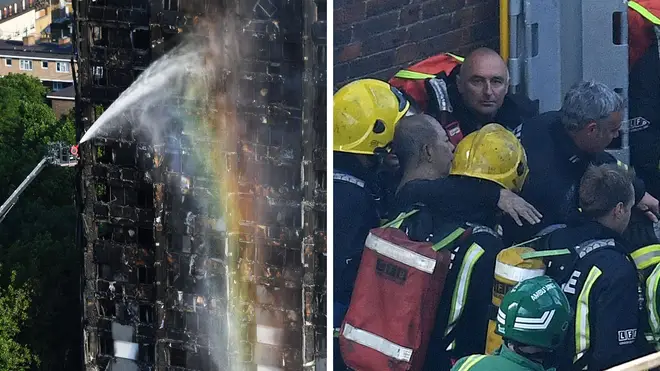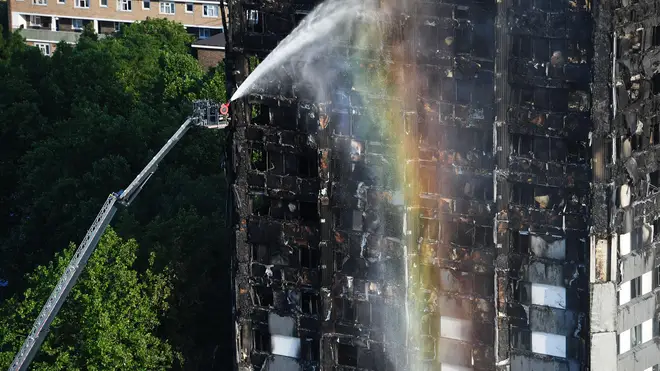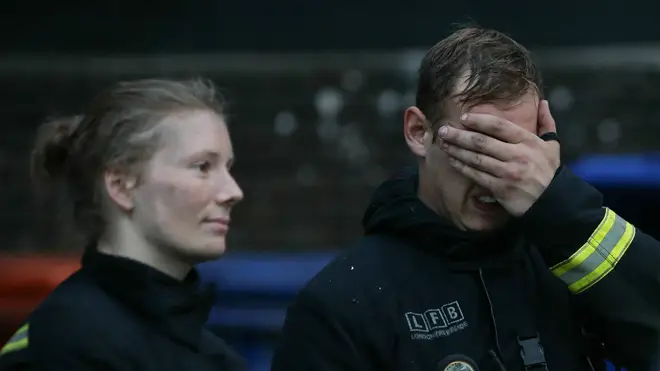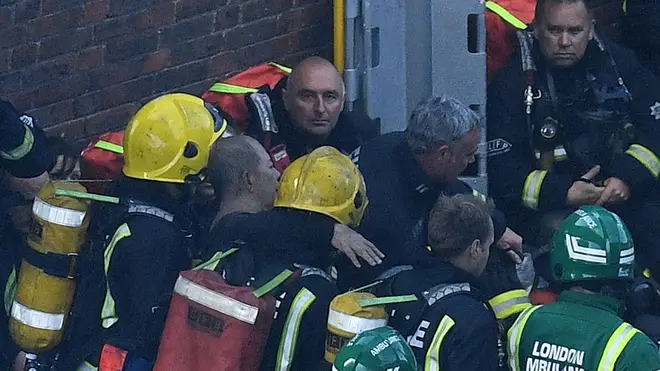
Iain Dale 7pm - 10pm
13 January 2023, 00:06 | Updated: 13 January 2023, 06:26

Firefighters who bravely battled the blaze at Grenfell Tower have been diagnosed with terminal cancer.
Up to 12 have been diagnosed with the disease – understood to mostly be digestive cancers and leukaemia – but more than 20 may be affected.
Firefighters and survivors from the disaster have called for medical screenings as a list of rescuers who went to the scene in 2017 and have cancer is being drawn up.
Strokes, heart disease and kidney failure are also understood to have been recorded among the heroes – possibly due to the physical toll on their bodies during the tragedy.
"We are expecting some really depressing data to be revealed soon. It's shocking," a fire service source told the Mirror.
Read more: Woman in her 20s dies 'after dog attack' as armed officers detain seven animals
Some of the 1,300 firefighters thought to have attended the scene were left in their contaminated suits for more than 10 hours while others were in a smoke-filled basement for up to six hours.
Firefighters ran out of air and could have breathed in smoke.

Analysis carried out on the debris found there were heightened concentrations of chemicals that cause cancer and proven carcinogens with 200 metres of the tower, the paper said.
Responders were also seen outside the tower in the days after the blaze without wearing protective kit, with some experts fearing toxins could have been even worse for people in the wake of the blaze.
Meanwhile, research this week found firefighters are twice as likely to end up being diagnosed with cancer if they find soot in their nose or throat, and the same rate applies to those who stay in their often contaminated kit for more than four hours after a fire.
Riccardo la Torre, Fire Brigades Union national official, said: "This vital research proves that firefighters are suffering and dying from cancer, strokes, heart disease, and mental ill health as a result of going to work and protecting the public.
"We now know that firefighters are exposed to health and life-threatening contaminants as a result of their occupation, and certainly would have been at an incident the size and scale of the Grenfell Tower Fire.

"However, firefighters are left in the dark due to the lack of regular health surveillance and proper monitoring of exposures in the UK.
"Due to this inaction by the government and fire bosses, the Fire Brigades Union is commissioning further research to help us demand proper protection and support for our members who attended Grenfell, and for firefighters all over the UK."
David Badillo, the first firefighter who went in, said: "On a personal level it’s very worrying. I've got two young kids and I want to see them grow up.
"I've been scanned and nothing’s come up, thankfully, so far, but you don't know what could happen in the future."

Another firefighter said he felt suicidal and had been left with scarred lungs.
"I've heard loads of guys and girls have been sick with the 'Grenfell cough' and I've never smoked a cigarette in my life," he said.
The Grenfell tragedy left 72 people dead and set off a series of inquiries into the response and building safety.
The youngest victim was just six months old.
Other buildings' cladding has been reevaluated after the fire, with residents calling for them to be removed and waking watches being set up outside some properties.